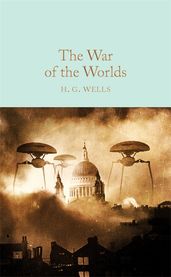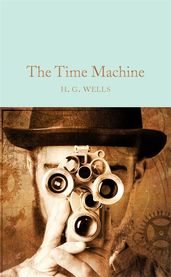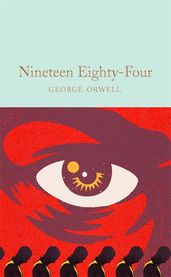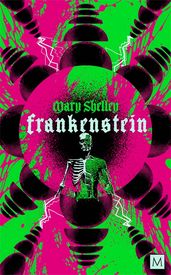5 eerily prophetic classics that were ahead of their time
Discover the classic novels – and the authors – whose works of fiction were written decades or even centuries ago, yet were lightyears ahead of their own eras.
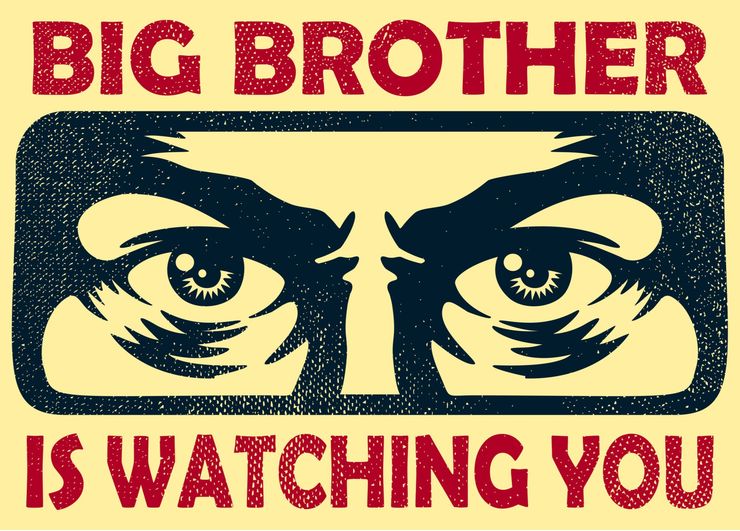
Many, many authors have attempted to peer into the distant future, creating their own vision of what human society could look like aeons ahead. These writers were decades, or even centuries ahead of their contemporaries. In 1873, Jules Verne imagined a world so interconnected that you could circumnavigate it in just eighty days, Mary Shelley’s unnerving novel Frankenstein is considered a landmark of both gothic and science fiction, and George Orwell’s Nineteen Eighty-Four foretold a dark future of surveillance that often resembles the modern day.
H. G. Wells is considered by many to be the father of science fiction, because his futuristic novels written in the Victorian era were so ahead of their time. From alien invasion to time travel, he paved the way for the imagination and invention we see in modern films, TV shows, games and literature.
So, to commemorate the 75th anniversary of his death we’ve curated our edit of five classic books that were so eerily ahead of their time, they’re a must-read in 2021:
War of the Worlds
by H. G. Wells
Published in 1897, in War of the Worlds, H. G. Wells tells a story of aliens from Mars invading Earth using heat rays, tripod-shaped fighting machines and chemical weapons to start a war between the extraterrestrial race and humankind. Wells wrote this tale of war between an extraterrestrial race and humankind in the 19th century, an era when space exploration existed only in the imagination and chemical weapons were yet to be invented. Yet his futuristic vision explores many of the same moral questions around imperialism and classism that we still ask ourselves today.
War of the Worlds has been adapted for both the big and small screens and still captures readers’ imaginations over a century after publication.
The Time Machine
by H. G. Wells
The Time Machine is widely credited for popularising the concept of time travel, which was a completely novel idea when Wells was alive, but due to this book has become a staple science fiction trope that’s explored widely on screen and in books. In The Time Machine, a man travels to various years in the future using a state-of-the-art device of his own invention. In the year 802,701, he finds a society of small adults living in a utopian, garden-like London, but soon discovers another civilisation of nocturnal creatures that were once subservient and now hunt the surface dwellers. H. G. Wells uses the two races to comment on class structures and explore the idea of evolution in reverse.
Nineteen Eighty-Four
by George Orwell
In Nineteen Eighty-Four, George Orwell depicts an oppressive, totalitarian society that treats people as though they are cogs in the societal machine. Our narrator rebels against this regime but must be careful not to get caught by the Thought Police, a constant surveillance service using hidden cameras and screens that report people to Big Brother, their mysterious leader. Orwell was writing this novel in 1949, decades before the smartphone and personal computer were invented, yet this idea of Thought Police has become a feared reality and common term in today’s technology focused world.
‘Don’t you see that the whole aim of Newspeak is to narrow the range of thought? In the end we shall make thoughtcrime literally impossible, because there will be no words in which to express it.’
— Nineteen Eighty-Four
Around the World in Eighty Days
by Jules Verne
Around the World in Eighty Days, originally published in French in 1873, follows Phileas Fogg as he tries to travel around the world in eighty days to win a £20,000 wager. Using a mixture of trains and boats and a carefully planned itinerary, that of course doesn’t go to plan, he completes the trip just in time. Jules Verne and his peers dared to dream about the future of travel at a time when the first transcontinental railroad had just been built, yet now we can fly round the world in a mere 51 hours. His book has been the inspiration for many adaptations, with a new series starring David Tennant coming to the BBC in 2021.
Frankenstein
by Mary Shelley
Victor Frankenstein is a young scientist who embarks on the experiment of a lifetime, creating a living being from human remains. But when his creation wakes up, Victor is terrified and flees, leaving the creature alone in a world that doesn’t understand him. Published in 1818, some argue that Mary Shelley’s Frankenstein is the first true science fiction novel and it has remained in our cultural consciousness ever since. Mary Shelley dared to explore the limits between life and death, and asked readers to question how far modern science can, and should, interfere with the natural world.
